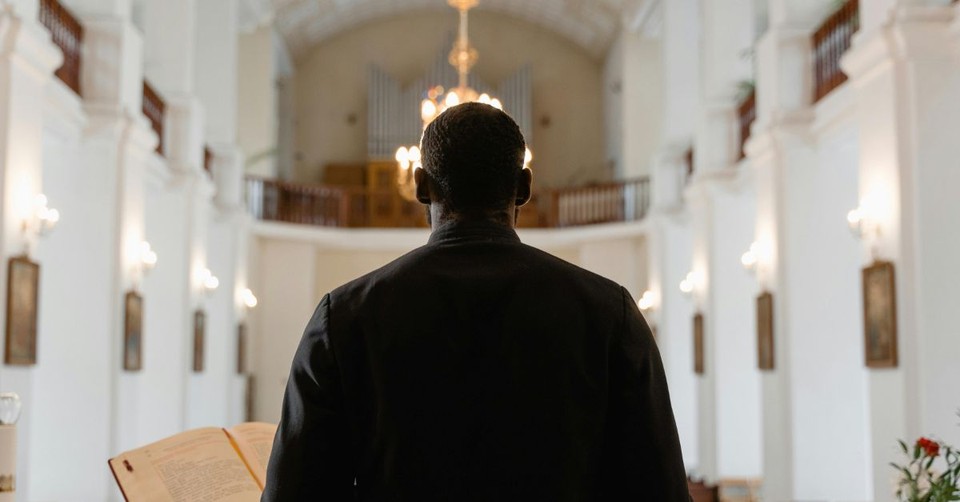Pastors Are People, Too

I have a heart for pastors. Not simply because I am one and can therefore empathize in ways someone who has never been in that position can, but also because I simply have a heart for them. I love sitting down with a pastor over a coffee, hearing their story, and hopefully offering a helpful or encouraging word. I love mentoring younger pastors, opening my life of 40-plus years in vocational ministry in any way that would serve. I would rather speak to a gathering of pastors than any other kind of conference.
And right now, I’m concerned about many of them. Most are overworked and underpaid. They live, along with their family, in a fishbowl of constant public evaluation. They provide the spiritual and emotional support to the community of faith they serve but seldom feel comfortable receiving it from that same community themselves. They give until they are spent, accepting and placing unrealistic expectations on their lives. They are dealing with burnout and fatigue—particularly compassion fatigue and decision fatigue.
This, of course, is nothing new.
Neither is church dysfunction. While many stories of late center on pastors being the culprit (and they deserve to be revealed), Adam McInnis writes that, “Growing awareness of abuse also leads to increased suspicion of people in leadership, which can make the job of being a leader that much more difficult.” As one pastor put it, when people come to his church and say they have been “hurt” by a previous church, he believes them. Some pastors do wield power inappropriately. “Yet when pastors tell me of their own stories of church hurt,” he adds, “I also believe them.” He writes:
I can’t think of a time when I’ve sat with a pastor who didn’t have several stories: congregants who turned into bullies, volunteers who caused damage because they didn’t get their way, or an elder who went rogue. Members of the flock, too, can cause damage to good-hearted and hard-working pastors.
But there’s more.
Most pastors simply want to teach the Bible, love people, build a community of faith, and reach those far from God. Yet our current cultural decivilization has led to an ideological tribalism that has manifested itself in both theological and ecclesiastical dynamics. Translation: pastors must not simply navigate traditional vs. contemporary worship preferences, or varying views on the end times, but also presidential elections, immigration policy, vaccines and the latest definition of “woke.” They are caught in cultural crossfires that no seminary on the planet prepared any of them for.
Little wonder that so many pastors are facing extreme mental health issues, including anxiety, depression and thoughts of suicide. According to a 2024 Barna study, nearly one out of five senior pastors at Protestant churches report that they have contemplated self-harm or suicide in the past year. As an article in Christianity Today reported:
Many American pastors are quietly grappling with mental health struggles. Nearly half – 47% – report feeling lonely or isolated. A majority self-report feelings of depression. And 65% say they’re not talking to a therapist, counselor, spiritual advisor or mentor.
So why are so few seeking help? They don’t feel like they can. There remains a stigma in many Christian circles that mental health issues are entirely spiritual in nature and, if present, betray spiritual weakness if not outright sin. This is, of course, simply not true.
Throughout Christian history, men and women who have been deeply committed to Christ have been gripped, sometimes mercilessly, in the icy clutches of depression. The great Protestant reformer Martin Luther wrote of his battle with depression. So did Charles Spurgeon. Famed missionary to China, Hudson Taylor, battled severe depression all his life. At one point, as discovered in an unpublished note in his papers, he even contemplated “the awful temptation [to] end his own life.”
So pastors, get the help you need. Whether counseling or medication, sabbaths or spiritual friends... even a coffee with an older, seasoned pastor.
And to the rest of us…
... when was the last time you spoke an encouraging word to your pastor or sent an encouraging note?
... when was the last time you stepped up, unasked, to serve your church at a point of strategic need?
... when was the last time you lowered your expectations for your pastor and his family, instead of raising them?
And most critically of all,
... when was the last time you prayed for your pastor?
After all, pastors are people, too.
James Emery White
Sources
Steve Cuss, “Church Hurts for Pastors, Too,” Christianity Today, March/April 2025 Issue, read online.
Adam MacInnis, “The Mental Health Crisis Ministers Struggle to Talk About,” Christianity Today, April 25, 2025, read online.
Dwight L. Carlson, “Exposing the Myth that Christians Should Not Have Emotional Problems,” Christianity Today, February 9, 1998, read online.
Samuel H. Chao, “Remarkable or Little-Known Facts About Hudson Taylor and Missions to China,” Christian History 15, no. 4.
Photo Courtesy: ©Pexels/MART PRODUCTION
Published Date: May 19, 2025
James Emery White is the founding and senior pastor of Mecklenburg Community Church in Charlotte, NC, and a former professor of theology and culture at Gordon-Conwell Theological Seminary, where he also served as their fourth president. His latest book, Hybrid Church: Rethinking the Church for a Post-Christian Digital Age, is now available on Amazon or from your favorite bookseller. To enjoy a free subscription to the Church & Culture blog, visit churchandculture.org where you can view past blogs in our archive, read the latest church and culture news from around the world, and listen to the Church & Culture Podcast. Follow Dr. White on X, Facebook, and Instagram at @JamesEmeryWhite.
Originally published May 19, 2025.







